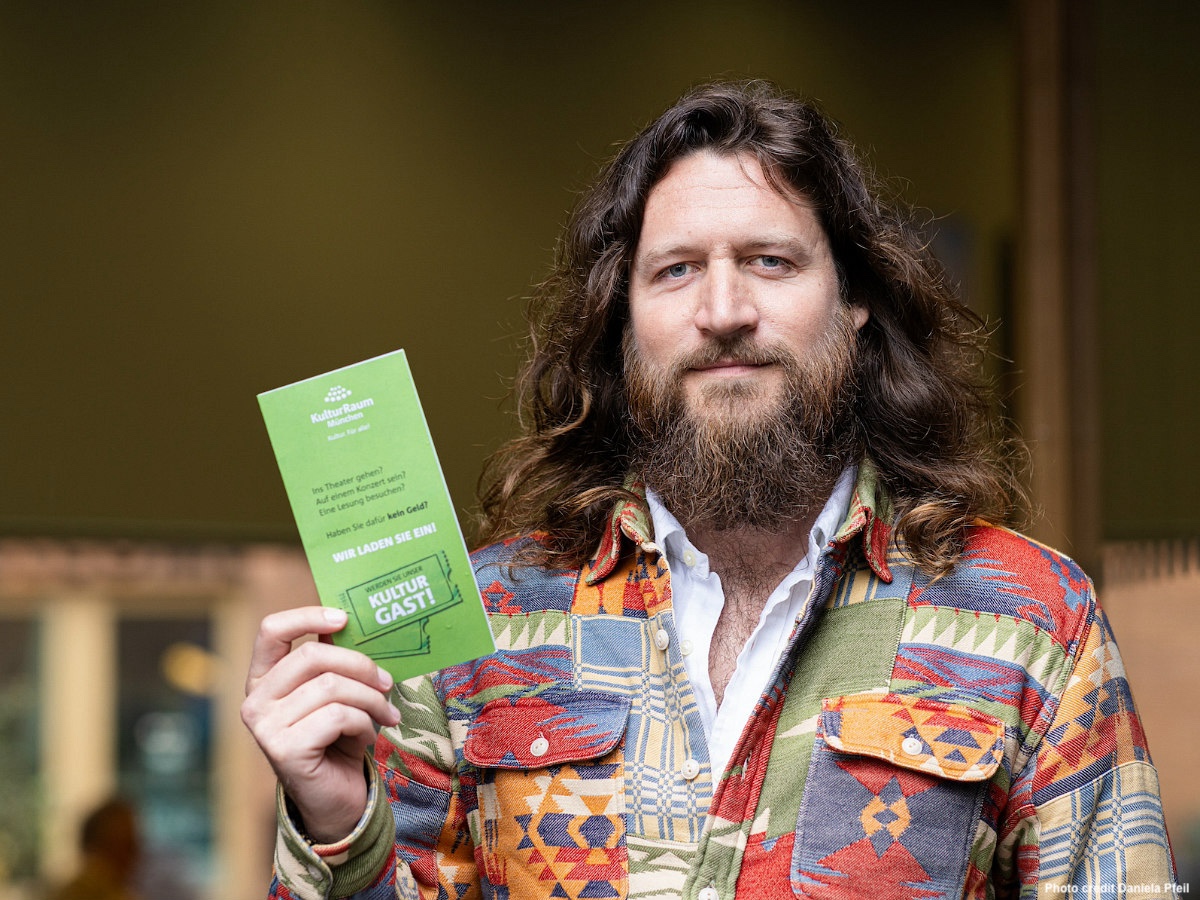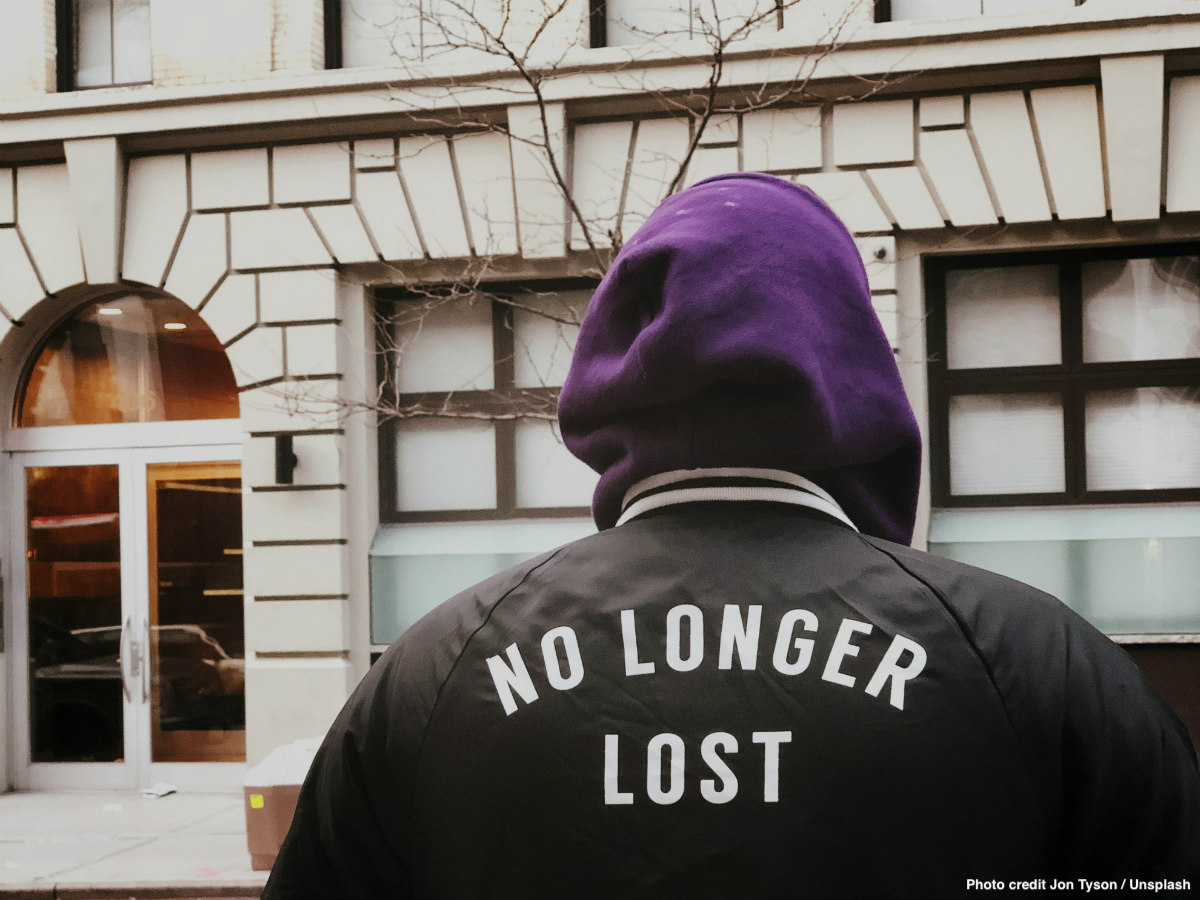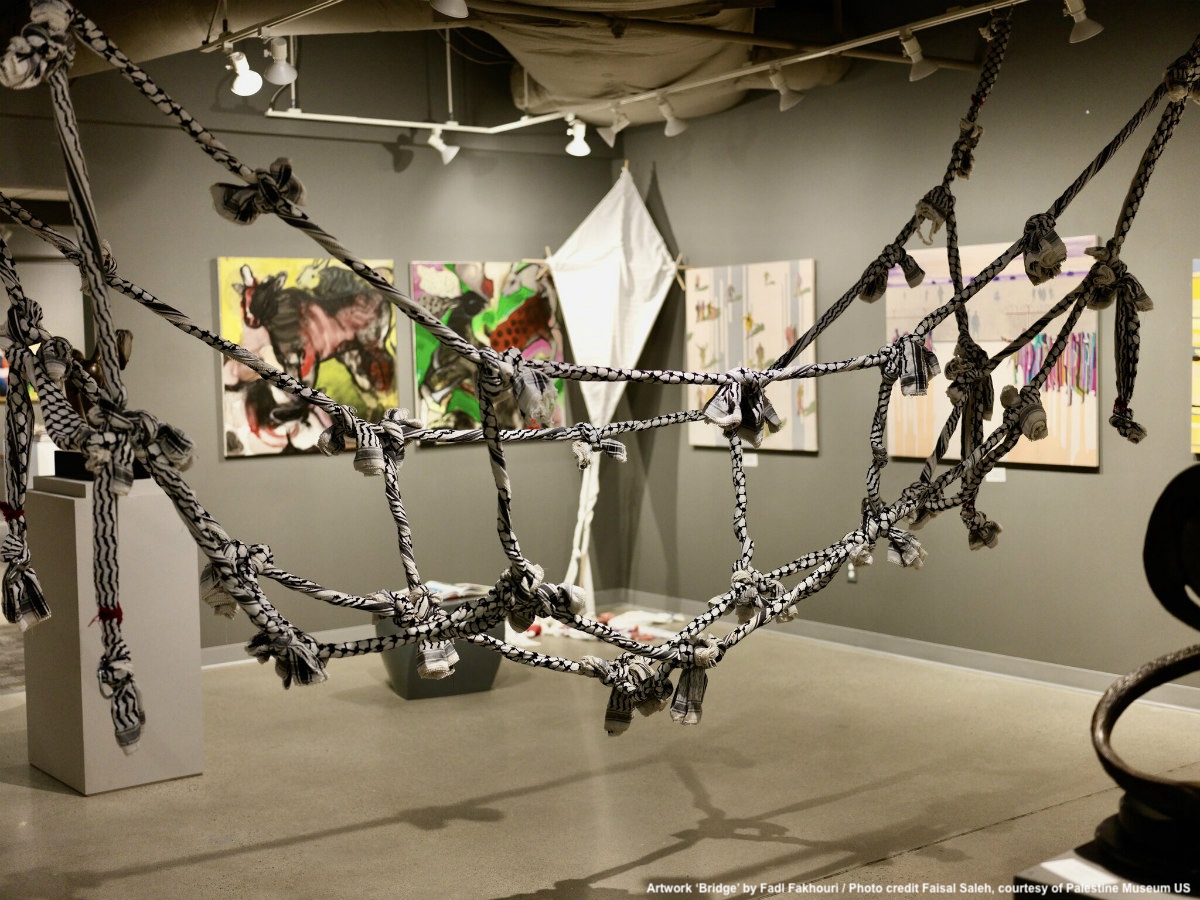It is Saturday evening in Munich, and two friends are off to the theater. Their names are on the organizer’s guest list, but they are not celebrities nor have any preferential status. But this red carpet treatment is how some theaters handle their free of charge entrance to KulturGäste (cultural guests). Does the human right to cultural participation deserve any less?
KulturGäste are people living in Munich whose low income doesn’t afford them the “luxury” of cultural events, but qualifies them to receive free tickets. “It’s great when you get a call out of the blue,” reports one such cultural guest. Last year alone, around 2,700 cultural guests were admitted to concerts and similar events in Munich thanks to the nonprofit organization KulturRaum München e.V.
“We are the most known organization among a particular group of people in Munich but completely unknown to the overall population,” points out Sabine Ruchlinski, the founder of KulturRaum, in an event I attended two months ago in Munich. She has a point. In all the years I have been living in this city, I have never heard of this initiative.
Ruchlinski started up KulturRaum in 2011 after she discovered that the small German town of Marburg made unsold tickets available to people on a budget, an idea that quickly spread to other German cities. Within a year, Ruchlinski approached cultural venues in Munich asking them to donate free tickets, and at the same time reached out to social organizations with access to people who could need the tickets most.
It’s perhaps not news to say that, in general, venues have often donated tickets, especially if the events would not end up selling out. The interesting thing is that a free ticket doesn’t guarantee interest in cultural participation. “It is important to understand people’s motivation to attend an event and explore the barriers that prevent somebody from participating in cultural life,” Sophie Marshall, communication manager at KulturRaum, tells me when we meet at their offices.
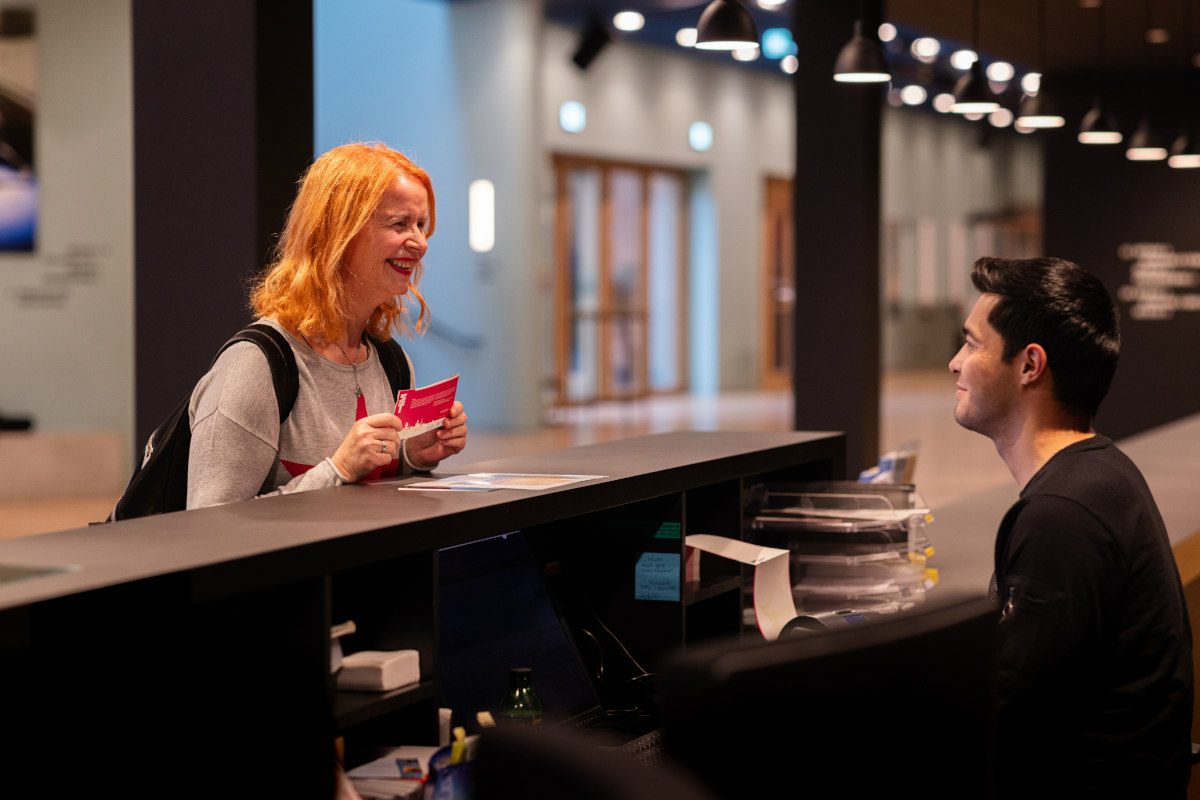
***
KulturRaum uses a matching system that functions as a kind of Tinder for culture, meaning that a user does not necessarily immediately fall in love with a concert. It is the outreach work, the personal contact and the impressive network of 75 volunteers who liase on the phone with the cultural guests, that make the work of this organization so unique. Hat’s off to them, and the theater jacket too.
The registration process for free tickets is fairly straightforward. People use the organization’s website or regular mail to send documents that prove their income is below a certain threshold. Once registered, their data feed an algorithm that matches quotas of tickets with people’s interests, personal circumstances (individual or families) and how much time has passed since they have received the last ticket. Then volunteers start calling cultural guests to personally offer them tickets for a particular event. During this conversation, they would normally speak about relevant concerns, such as any psychological, physical or social barriers to attending the event.
Sometimes concerns are very practical. People worry about how to dress for the occasion. It is the volunteers’ job to explain what to expect at venues and then give useful recommendations regarding what to wear for the evening. “If the closet doesn’t have much on offer, a black attire always works well,” suggests one volunteer.
For others, such as the elderly, or people with physical or mental disabilities, it could be hard or impossible for them to reach a venue independently or to use standard facilities (seats, toilets, etc.) once there. Having to depend on somebody else can also be a psychological barrier to attending an event, as is the discomfort of considering attending alone. As a thoughtful fix for this, KulturRaum always offers cultural guests a second ticket for a friend or family member, regardless of the companion’s income status. This is a great gesture that not only increases attendance at events, but also gives these cultural guests the feeling of dignity, and indeed even pride, to be able to invite a friend to an evening at the Opera House.
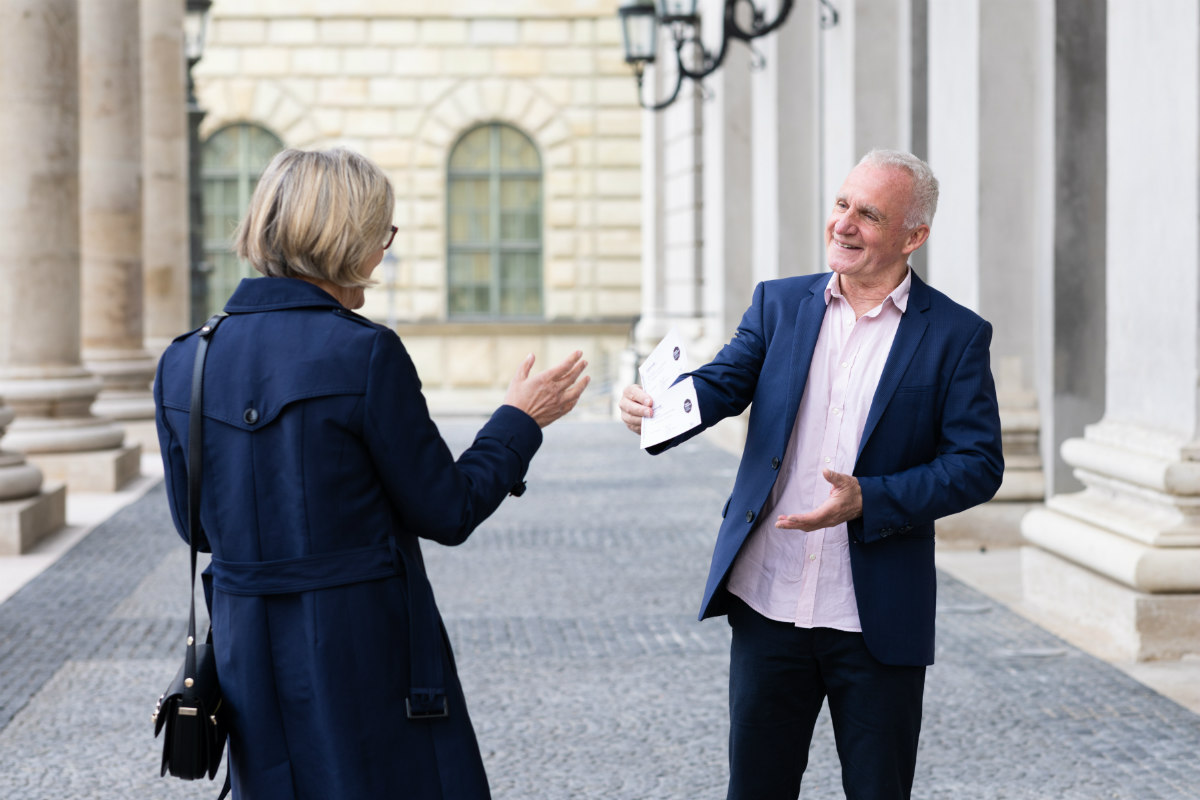
If the cultural guest doesn’t have anybody to bring, as it happens sometimes with newcomers like asylum seekers, or people with disabilities, Kulturraum has thought of that too; they have started a program called “KulturPaten” that offers tickets in a tandem of a cultural guest with a mentor to attend events together. KulturRaum has further plans for volunteers to accompany cultural guests to events.
Furthermore, on the same call, volunteers inform the cultural guests about what they can expect from an event and why it could be a good fit for them. Ethnic minorities (more than half of the total cultural guests are non-Germans), single mothers with small children (who depend on babysitting to attend an event), teenagers and other particular social groups may feel distant from the mainstream arts and culture, not just because they may lack the finances, but because they lack awareness of cultural events or a sense of belonging in cultural venues.
“Giving information on the phone works really well to get people open for completely new experiences, especially experimental performances that could expand their horizons,” says Marshall. A particular challenge in the facilitation of cultural products is to include lesser-known dance performances, experimental theater pieces or sophisticated political documentaries, while, at the same time honoring the interests of the attendees. “We would like to respond to guests’ wishes for ‘light’ or classic entertainment,” says Marshall. Succeeding at the goal of increasing cultural participation among cultural guests relies on how to handle this difficult balancing act.
***
One hour after I met Marshal at the KulturRaum offices, we ride together on our bikes to an outdoor spot in Munich where there is a beautiful KulturRaum booth, under an orange umbrella – come rain or shine, volunteers are always there two days a week. Next to the umbrella, two musicians, Titus Waldenfels and Petra Lewi, play the violin and the guitar respectively. People pass by to queue up for free food supplies organized by the well-known nonprofit Münchener Tafel. Volunteers of KulturRaum then attract people’s attention with tips on free events in Munich, and encourage them to register at KulturRaum.
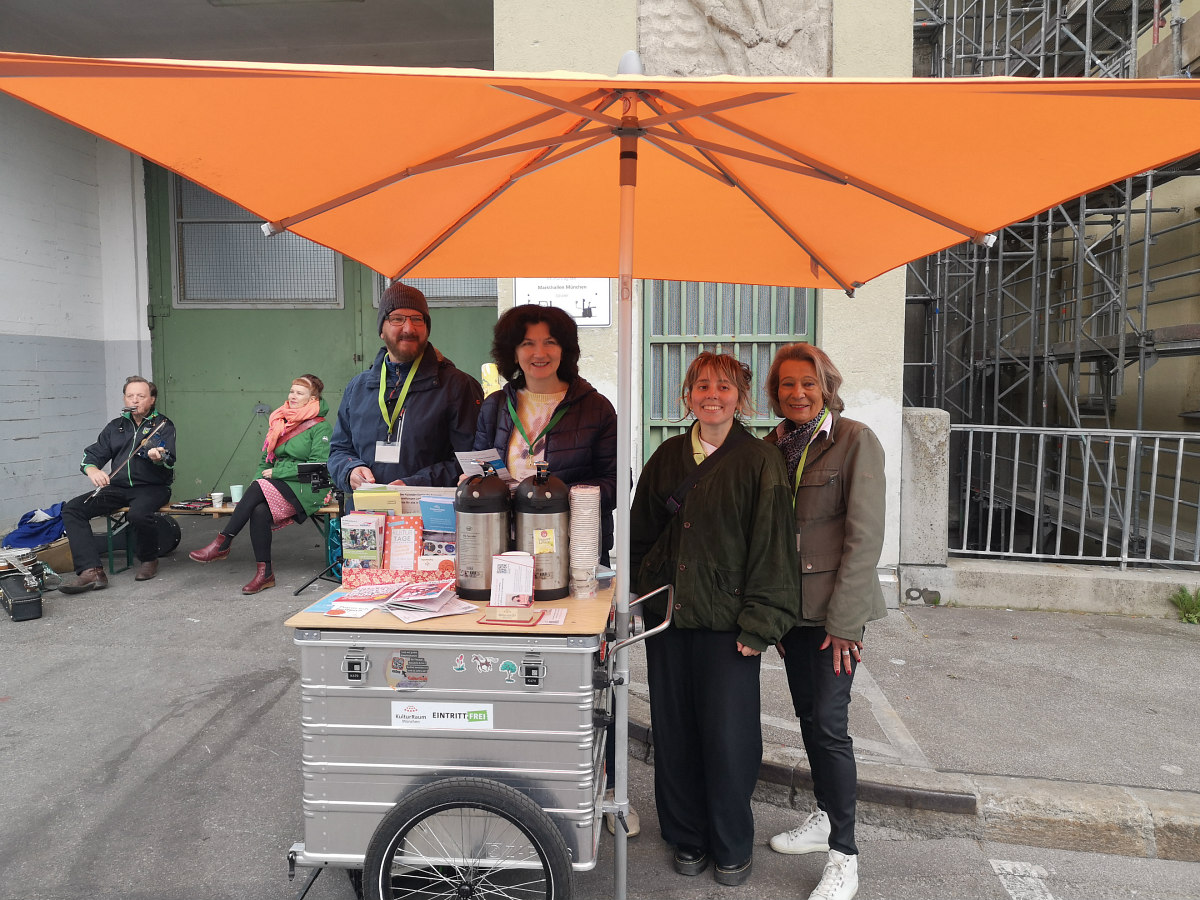
It is a windy, chilly day but there is an air of kindness. I get to speak to Hannah Wolf, a long-time volunteer, who tells me how rewarding it is to have personal contact with people, and introduce them to culture. While we are talking, Elke Werner-Hinz, another long-time volunteer and member of the board, greets an old man. “We meet people quite regularly. We know each other,” she says. “They know we play music for them, and it helps relieve pressure in difficult life situations.”
A visit to the theater, a concert, cinema or cabaret distracts people from everyday worries, and has positive impacts on society at large. “The offer [of a ticket] makes me feel like I still belong in some way,” says one cultural guest.
A report produced by the UNESCO Institute of Statistics titled “Measuring Cultural Participation,” points out the importance of giving access to culture. It cites Irish journalist Fintan O’Toole (named by The Observer as one of “Britain’s top 300 intellectuals”), who wrote: “cultural participation is very strongly linked to citizenship, to the reality of citizenship. So, just as you are implicitly being defined as not being fully human if you don’t have the capacity to participate in cultural life, you’re also defined as implicitly not a citizen if you don’t have that capacity.” Additionally, he makes the important observation that, “If you don’t have access, you are the object of culture rather than the subject of culture.”
In the case of families, according to researchers, says the UNESCO report, “there is a strong and positive correlation between the level of attendance at cultural events in adult life and the level of education and familiarity with the arts developed at a young age.” Another strong reason for KulturRaum to include families in their program.
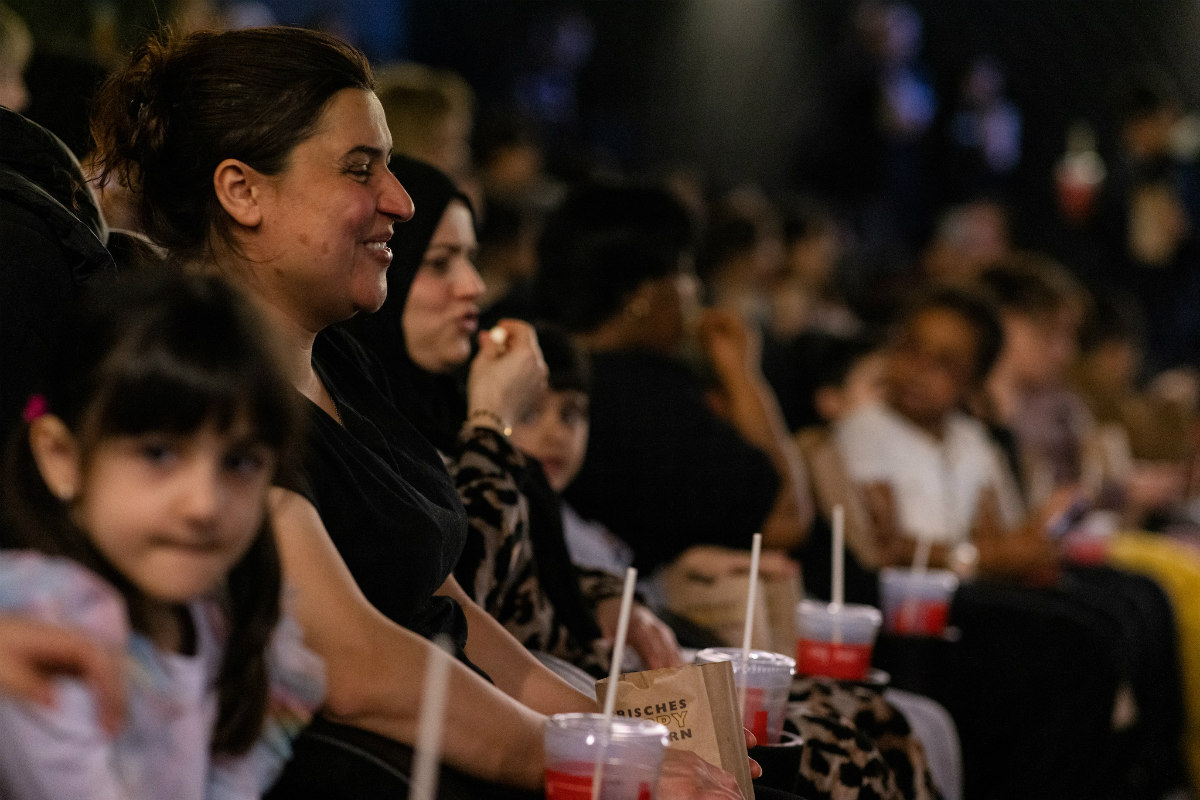
“Culture creates moments that make you incredibly happy,” says long-time volunteer Klaus Ziegler. He hears it often through the phone: “Yesterday, thanks to your support, I went to the circus with my granddaughter,” says a cultural guest. “This morning she said to her parents, ‘It was one of the best days of my life!’”
In 2019, a study by the World Health Organization (WHO) described the positive impact of art and culture on health and quality of life. And there is a growing trend of studies and scientific research that demonstrate the importance of participation in cultural activities, in particular for low-income citizens, due to their perception of their own psychological well being. Currently, KulturRaum, as well as other similar nationwide initiatives, are involved in a research project at the Heinrich-Heine-University in Düssledorf about “Cultural Participation and Citizen Science”.
City governments struggle to find metrics that provide robust evidence and a comprehensive picture of the social impact of cultural participation. Nevertheless, governments can only make policies and support initiatives like KulturRaumwhich seem more likely to increase wellbeing. Empirical evidence is hard to come by.
But the personal contact that KulturRaum has with people can aid a city government by indicating which difficult social issues to tackle and where to allocate public funds: isolation, loneliness, health, poverty or social exclusion. The volunteers at KulturRaum put meat on the policy’s bones: they are exposed to citizens who, for instance, haven’t been out in the evening for more than six months, or are reluctant to accept a free ticket, or who reject the idea of cultural participation altogether. KulturRaum can now help us see these nuances, and effect greater, more targeted change.
At a time of astronomical ticket prices and rising production costs for major shows, living in one of the most expensive cities in Germany can quickly create an elitist vision of culture – a privilege only well-educated high-earning citizens can afford. This image deprives a significant sector of the population from culture, which deprives the society as a whole.
In last year’s KulturRaum report, Ruchlinski writes: “We want to strengthen democracy by enabling social participation and giving the unifying power of culture a higher status.” As I understand it, this is the essence of their work.
